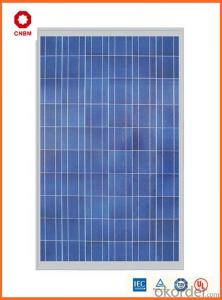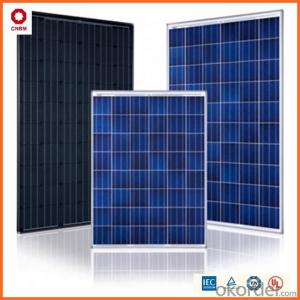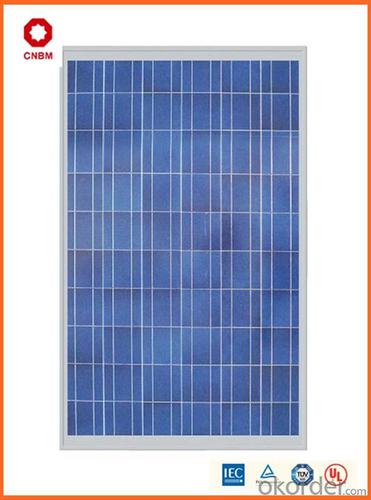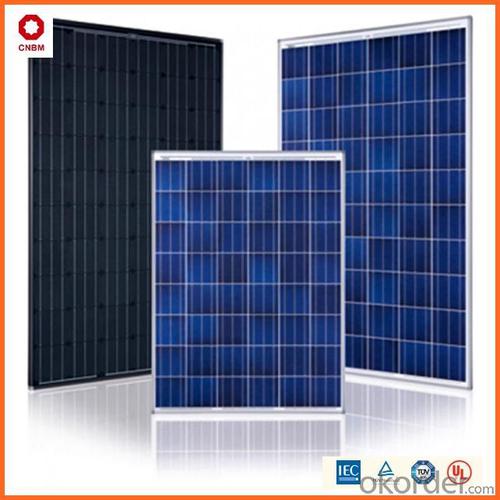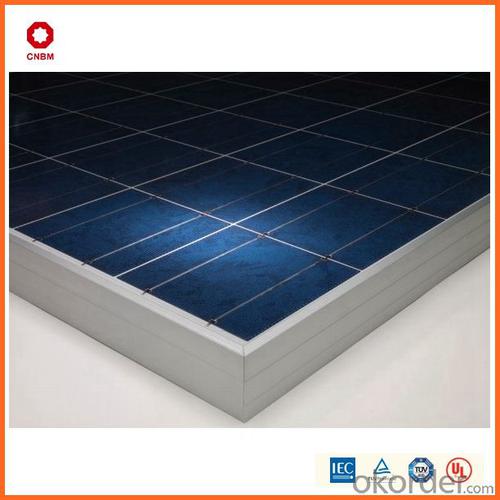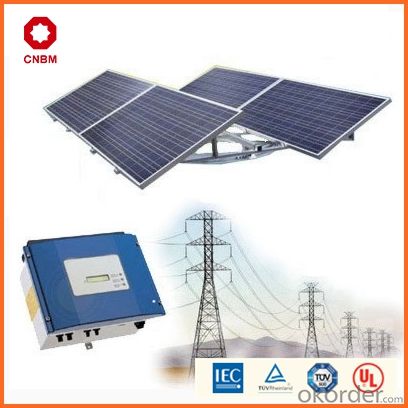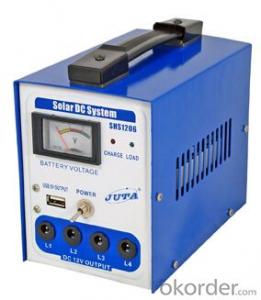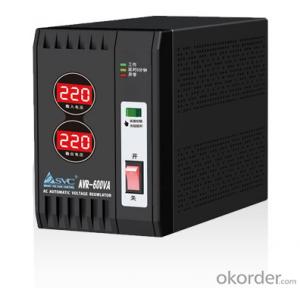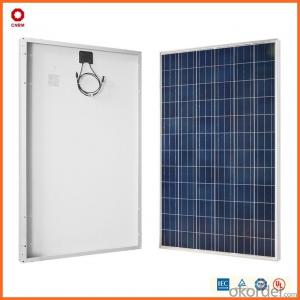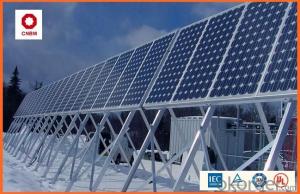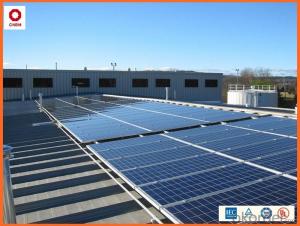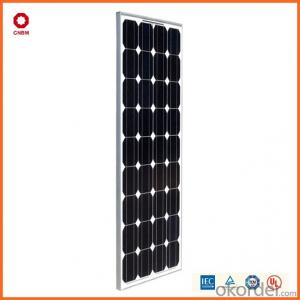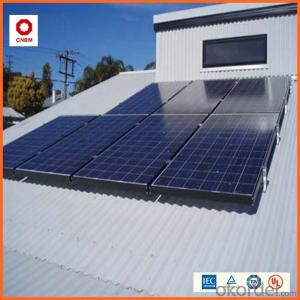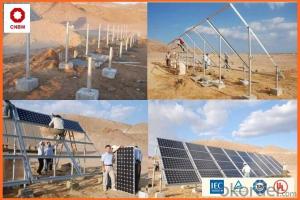5W Small Solar Panels in Stock - Solar Energy Systems Peoria - China Manufacturer
- Loading Port:
- China main port
- Payment Terms:
- TT OR LC
- Min Order Qty:
- 10 watt
- Supply Capability:
- 10000000 watt/month
OKorder Service Pledge
OKorder Financial Service
You Might Also Like
Specification
Product Description:
Hot Sale !!! Quality and Safety of Small Poly Solar Panel 5w~150w
1. Rigorous quality control meets the highest international standards.
2. High-transmissivity low-iron tempered glass, strong aluminium frame.
3. Using UV-resistant silicon.
4. IS09001/14001/CE/TUV/UL
Warranties of Small Poly Solar Panel 35~85w
1. 10 years limited product warranty
2. 15 years at 90% of the minimal rated power output
3. 25 years at 80% of the minimal rated power output
Specification
Characteristics of Poly solar panels CNBM (245-320W) | |||||
Max Power Voltage Vmp(V) | 30.3 | 30.8 | 31.1 | 31.4 | 31.85 |
Max Power Current Imp(A) | 7.60 | 7.64 | 7.73 | 7.81 | 7.85 |
Open Circuit Voltage Voc(V) | 36.1 | 36.6 | 37 | 37.3 | 37.68 |
Short Circuit Current Isc(A) | 8.50 | 8.55 | 8.65 | 8.75 | 8.85 |
Max Power Pm(W) | 230W | 235W | 240W | 245W | 250W |
Temperature Coefficient of Cells Poly solar panels CNBM (245-320W) | |
NOCT | 45± 2 |
Temperature Coeffucients of Isc | 0.0492 |
Temperature Coeffucients of Voc | -0.3374 |
Temperature Coeffucients of Voc | -0.4677 |
Mechanical Data of Poly solar panels CNBM (245-320W) | |
Dimension | 1638 × 982 × 40 mm |
Weight | 19.5 kg |
No. of Cells and Connections | 60 (6 ×10) |
Tolerance | 0 ~ + 5 W |
Cell | Monocrystalline Cell 156 × 156 mm |
Packing | 624 Pcs/40ft(H) Container |
Limits of Poly solar panels CNBM (245-320W) | |
Operating Temperature | -40 to +85 |
Storage Temperature | -40 to +85 |
Max System Voltage | 1000VDC(IEC) / 600VDC(UL) |
Features of our products:
• High conversion efficiency mono/poly-crystalline amorphous silicon solar cells
• Modules incorporate high performance bypass diodes to minimize the power drop caused by shading
• High transmittance, low-iron tempered glass
• High performance EVA encapsulant to prevent destroying and water.
• AI frame: without screw, corner connection. 8 holes on the frame can be installed easily
• Good performance of preventing from atrocious weather such as wind and hails
• Certifications: CE IEC TUV VDE UL, Class I
• 10 years 90% power output warranty

Shipping of Small Poly Solar Panel 35~85w
By Sea | Delivery from Shanghai or Ningbo seaport |
By Air | Departure from Shanghai Pudong Airport |
By Express | Post by DHL, EMS, UPS, TNT. |
Features of our products:
• High conversion efficiency mono/poly-crystalline amorphous silicon solar cells
• Modules incorporate high performance bypass diodes to minimize the power drop caused by shading
• High transmittance, low-iron tempered glass
• High performance EVA encapsulant to prevent destroying and water.
• AI frame: without screw, corner connection. 8 holes on the frame can be installed easily
• Good performance of preventing from atrocious weather such as wind and hails
• Certifications: CE IEC TUV VDE UL, Class I
• 10 years 90% power output warranty
As a professional Solar Panel manufacturer and Supplier in China, we have our customers come around the whole world and our specialization has got a worldwide recognition. Meanwhile, with our superior quality, competitive price, prompt and excellent service, As main role in trade section of CNBM Group, CNBM International Corporation supplies products including Monocrystalline Solar Panel, Polycrystalline Solar Panel ( multicrystalline silicon Solar Panel) have received and enjoyed famous reputation in many countries and regions in the world.
- Q: How do solar energy systems impact social equity?
- Solar energy systems can have a positive impact on social equity by providing access to clean and affordable energy for all. By reducing reliance on fossil fuels, solar energy helps to mitigate climate change, which disproportionately affects marginalized communities. Additionally, solar power can create job opportunities and stimulate local economies, promoting social and economic development.
- Q: Can solar energy systems be used in areas with limited access to solar energy net metering programs?
- Yes, solar energy systems can still be used in areas with limited access to solar energy net metering programs. While net metering programs allow solar energy system owners to receive credits for excess energy they produce, the absence of such programs does not render solar energy systems useless. These systems can still generate and utilize renewable energy for on-site consumption, reducing reliance on traditional energy sources and potentially lowering electricity bills. Additionally, in some cases, solar energy systems can be designed to incorporate battery storage technologies, allowing for the storage of excess energy for use during periods of limited sunlight or higher demand.
- Q: How do solar energy systems impact wildlife and ecosystems?
- Solar energy systems have both positive and negative impacts on wildlife and ecosystems. On the positive side, solar energy systems do not emit greenhouse gases or other pollutants, which helps to mitigate climate change and reduce air and water pollution. This is beneficial for wildlife and ecosystems as it helps to maintain a more stable and healthy environment for them to thrive. Moreover, solar energy systems require minimal water resources compared to other forms of energy generation, such as fossil fuel power plants or hydropower. This is particularly important in arid regions where water scarcity is a significant concern. By reducing water usage, solar energy systems help to preserve water resources, which are essential for the survival of various plant and animal species. Additionally, solar energy systems can be installed on already disturbed or degraded lands, such as rooftops and brownfield sites, minimizing the need for further habitat destruction. This approach can help to conserve natural habitats and protect biodiversity by preventing the conversion of pristine lands into energy infrastructure. However, it is important to acknowledge that solar energy systems can have some negative impacts on wildlife and ecosystems as well. Large-scale solar installations can disrupt local ecosystems during the construction and operation phases. This disruption may cause habitat fragmentation, displacement, or disturbance to certain species. For example, the clearing of vegetation and the placement of large panels can affect the movement patterns and nesting habits of birds and other animals. Furthermore, some solar energy systems use reflective surfaces that can potentially create glare, which may disorient or blind birds and insects, leading to collisions or other negative effects on their behavior and survival. To mitigate these negative impacts, careful planning and siting of solar installations are crucial. Environmental assessments should be conducted to identify and avoid sensitive habitats and migratory routes. Additionally, measures such as using bird-friendly designs, implementing wildlife-friendly fencing, and planting native vegetation around solar installations can help to minimize impacts and create wildlife-friendly habitats. In conclusion, while solar energy systems offer numerous environmental benefits, they also have the potential to impact wildlife and ecosystems. However, with proper planning and implementation, the negative impacts can be minimized, and the positive impacts on mitigating climate change and reducing pollution will outweigh any potential harm.
- Q: Can solar energy systems be used for outdoor recreational activities?
- Yes, solar energy systems can be used for outdoor recreational activities. Solar panels can be used to power various outdoor recreational equipment such as camping lights, portable speakers, and even charging stations for electronic devices. Additionally, solar energy systems can be utilized to power outdoor recreational facilities like swimming pools, sports complexes, and campgrounds, providing sustainable and clean energy for these activities.
- Q: Can solar energy systems be used for heating and cooling homes?
- Yes, solar energy systems can be used for heating and cooling homes. Solar thermal systems can capture the sun's heat and use it to provide hot water or space heating. Additionally, solar-powered air conditioning systems can use solar energy to cool homes by absorbing heat from the indoor air and dissipating it outside.
- Q: Can solar energy systems be used in powering sports stadiums?
- Yes, solar energy systems can definitely be used to power sports stadiums. In fact, many stadiums around the world have already started implementing solar energy systems to meet their energy needs. Solar panels can be installed on the rooftops, parking lots, or open spaces surrounding the stadium to capture sunlight and convert it into electricity. The main advantage of using solar energy in powering sports stadiums is its sustainability and cost-effectiveness. Solar energy is a renewable source of energy that does not emit any greenhouse gases during its operation, making it environmentally friendly and helping to reduce carbon footprint. Moreover, once the initial investment is made in installing the solar panels, the ongoing operational costs are relatively low, which can result in significant savings on the stadium's energy bills. The size and structure of sports stadiums make them ideal candidates for solar energy systems. The large surface areas of stadiums provide ample space for installing a significant number of solar panels, which can generate a substantial amount of electricity. Additionally, the open spaces surrounding the stadium allow for optimal sunlight exposure, ensuring maximum energy generation. Furthermore, solar energy systems can be integrated with other technologies to enhance their efficiency and functionality. For instance, battery storage systems can be employed to store excess energy generated during the day and use it during night events or during periods of low sunlight. This ensures a continuous and reliable power supply to the stadium, regardless of the weather conditions or time of day. In conclusion, solar energy systems can definitely be used in powering sports stadiums. They offer a sustainable and cost-effective solution to meet the energy needs of these large facilities, while also reducing their environmental impact. With further advancements in solar technology and decreasing costs, it is expected that more sports stadiums worldwide will embrace solar energy as a primary source of power in the future.
- Q: How do I maintain a solar energy system?
- Maintaining a solar energy system is relatively simple and requires regular inspections and some basic upkeep. Here are some key steps to ensure the smooth operation and longevity of your solar energy system: 1. Regular cleaning: Keep the solar panels clean and free from any dirt, dust, or debris. Use a soft cloth or sponge with mild soapy water to gently clean the surface. Avoid using abrasive materials or high-pressure water, as they can damage the panels. 2. Check for shading: Regularly inspect the area around your solar panels and ensure that there are no obstructions causing shading. Shading can significantly reduce the system's efficiency, so trim any overhanging branches or remove any objects blocking the sunlight. 3. Monitor performance: Keep an eye on the system's performance to detect any potential issues. If you notice a sudden drop in energy production, it could indicate a problem with the panels or the inverter. Monitoring systems are available that can provide real-time data on your system's performance. 4. Inspect electrical connections: Check the wiring and electrical connections periodically to ensure everything is tight and free of damage. Loose connections or corroded wires can lead to power loss or even system failure. 5. Test the inverter: The inverter is a crucial component that converts the DC electricity generated by the solar panels into AC electricity for use in your home. Test it regularly to ensure it is functioning correctly and efficiently. 6. Have a professional inspection: While regular maintenance can be done by the system owner, it is advisable to have a professional inspection every few years. They can identify any potential issues or perform more in-depth maintenance tasks that require professional expertise. 7. Stay informed: Keep yourself updated with the manufacturer's recommendations for maintenance and any specific requirements for your particular solar energy system. They may provide guidelines on cleaning, maintenance schedules, or software updates. By following these maintenance practices, you can ensure that your solar energy system operates optimally and continues to generate clean and renewable energy for many years to come.
- Q: Can solar energy systems be used in areas with limited access to solar mounting systems?
- Yes, solar energy systems can still be used in areas with limited access to solar mounting systems. In such cases, alternative solutions like ground-mounted systems, solar canopies, or even portable solar systems can be utilized to harness solar energy effectively. These options provide flexibility in installation and can be adapted to various landscapes, making solar energy accessible even in areas with limited access to traditional solar mounting systems.
- Q: Can solar energy systems be used in powering agricultural processing facilities?
- Yes, solar energy systems can be used to power agricultural processing facilities. Solar energy systems, such as photovoltaic (PV) panels, can generate electricity from sunlight, which can then be used to power various electrical equipment and processes in agricultural processing facilities. This can include powering machinery used for cleaning, sorting, and packaging agricultural products, as well as running heating, ventilation, and air conditioning systems. Solar energy systems can also be integrated with battery storage solutions to provide a reliable and continuous power supply, even during periods of low sunlight or at night. Additionally, using solar energy to power agricultural processing facilities can help reduce reliance on fossil fuels, lower greenhouse gas emissions, and contribute to a more sustainable and environmentally friendly operation.
- Q: Can solar energy systems be installed on flat roofs?
- Yes, solar energy systems can be installed on flat roofs. In fact, flat roofs are often ideal for solar panel installation as they offer a larger surface area for placement and are easily accessible for maintenance. Additionally, there are various mounting options available specifically designed for flat roofs to ensure the optimal positioning and efficiency of the solar panels.
Send your message to us
5W Small Solar Panels in Stock - Solar Energy Systems Peoria - China Manufacturer
- Loading Port:
- China main port
- Payment Terms:
- TT OR LC
- Min Order Qty:
- 10 watt
- Supply Capability:
- 10000000 watt/month
OKorder Service Pledge
OKorder Financial Service
Similar products
Hot products
Hot Searches
Related keywords
